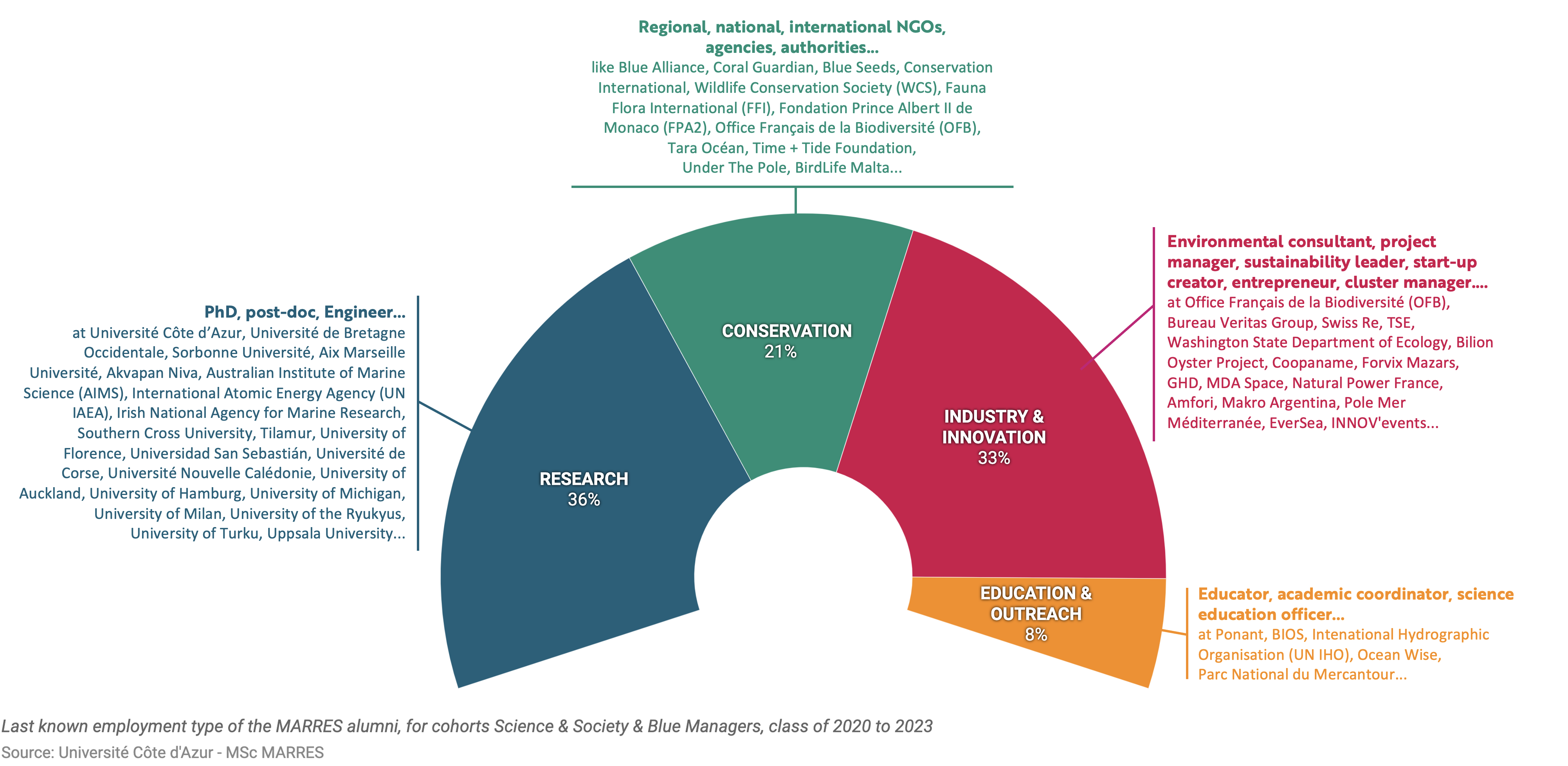MSc Ocean Science, Conservation & Innovation
The MARRES students
The MARRES students are fully part of the richness of the program. The variety of cultures, ages, backgrounds, and career goals participate in opening up students' perspectives around marine resources.
A typical Science & Society cohort consists of 15-20 students in each year, while the Blue Managers program hosts around 10 students. Additionally, approximately 10 exchange students join annually, enriching the cohort with diverse perspectives.
In majority from a life science background but also from
- engineering
- environmental management
- political science
- economy
- communication
The life after MARRES





















